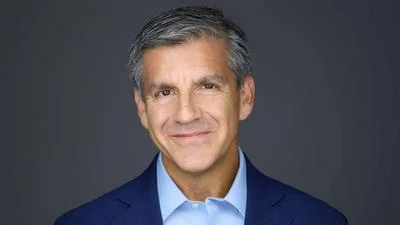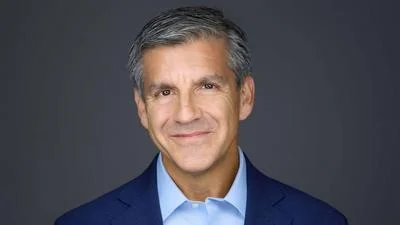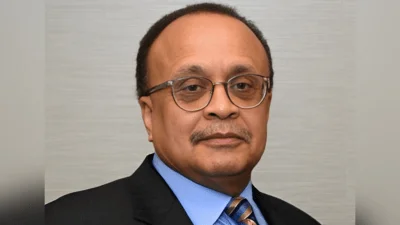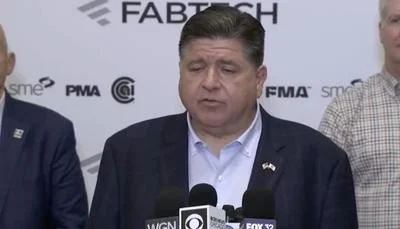The Congressional Record is a unique source of public documentation. It started in 1873, documenting nearly all the major and minor policies being discussed and debated.
“Coronavirus (Executive Session)” mentioning Richard J. Durbin was published in the Senate section on pages S802-S804 on Feb. 23.
Of the 100 senators in 117th Congress, 24 percent were women, and 76 percent were men, according to the Biographical Directory of the United States Congress.
Senators' salaries are historically higher than the median US income.
The publication is reproduced in full below:
Coronavirus
Mr. DURBIN. Mr. President, ``More deaths in 2020 than in any year in over a decade.'' That is what the Chicago Sun-Times headline read last week. But this wasn't a story about the coronavirus. It was an article about suicide. There were more suicides by Black residents of Cook County, IL, in 2020 than over the past 10 years. All told, 437 of our neighbors in Cook County took their lives.
At the same time, more than 600 Cook County residents died from opioid overdoses between January and June 2020 alone--double the number from a year earlier.
While the human suffering of COVID-19 has captured our attention, as it should, two other deadly epidemics in America still rage on: opioids and the mental health crises.
Even before the virus took its toll, we had been in the midst of the worst drug overdose crisis in our Nation's history, and we are witnessing skyrocketing rates of suicide. But COVID-19 has deepened these epidemics, which sadly feed on isolation and despair.
With the convergence of coronavirus emergencies, we are failing those most vulnerable to addiction and mental health challenges. And like the coronavirus, mental health challenges and addiction can occur with any one of us in any family, in any neighborhood.
Earlier this month, the New York Times profiled three American mothers on the brink of chaos and crisis. The story chronicled the relentless stress and burdens of working mothers over 11 months of this panic--struggling to balance remote learning duties for their kids, keeping their families safe and healthy, keeping food on the table, paying the bills, and knowing that every morning they have to get up and do it all over again that day and the next day, with no end in sight.
One of the mothers described the struggle this way. She said:
We are holding together with the same tape that we have been using since March. The tape is barely working, but we are still here.
She speaks for millions of mothers. Experts and advocates warn that COVID-19 has created a perfect storm for a surge in mental health and addiction. Isolation, fear, grief, financial hardship all come together and can feel overwhelming.
At the same time, the pandemic has made it more difficult for many to connect with lifesaving care and social services. Peer recovery meetings have moved to Zoom; routine human connections have been lost; and treatment access restricted. It is trauma on the brain and body, and it fuels the alarming spikes in addiction, overdose, and suicide.
Last week, I spoke with advocates from the Illinois Society of Addiction Medicine and a group called Live4Lali, a community organization focusing on recovery and harm reduction. These community leaders provide lifesaving care through recovery programs, street medicine, handing out fentanyl test strips, and distributing the overdose reversal drug naloxone.
The statistics they shared with me on Chicago-area opioid overdose deaths during this pandemic are devastating. In the last year, opioid deaths have soared: 23 percent in Lake County, 37 percent in DuPage County, and a staggering 64 percent in McHenry County.
Every morning, we look at the posting on CNN of the deaths in America from the coronavirus. Heartbreaking. Over a half a million people dead. But we are not posting the increase in deaths from opioids during the same periods of time.
Addiction is an equal opportunity killer. But like COVID, the opioid epidemic strikes communities of color with a disproportionate ferocity. In Chicago, Black residents are dying from overdoses at seven times the rate of White residents.
Let me tell you about one person who sought help from Live4Lali, a woman named Tonya, who recently moved to Lake County. When the pandemic hit, the recovery meetings for her substance abuse disorder shifted to Zoom, and the weight of the challenge left Tonya to struggle. She knew her recovery was in danger.
For days, she called for treatment programs, but no beds were available. Desperate, she called 9-1-1 emergency care at a hospital. Tonya was evaluated and sent home. Feeling hopeless and ashamed, she decided to take all of the pills in her mother's bottle of blood thinner medication. She was taken unconscious back to the hospital and pronounced dead.
Too many like Tonya are being left alone in their darkest hours. And it is not just in the Chicagoland area. According to the CDC, emergency room visits for suicides and overdoses spiked nationally once the pandemic gripped our Nation. By May, the country had experienced its largest 1-month spike in overdose deaths.
A new survey conducted by the CDC also found that one in four young adults had considered suicide in the past month--one in four. This should set off alarm bells in every direction.
There is no vaccine against despair and addiction, but there are programs and treatments and strategies. We must give communities and healthcare providers the support they need now more than ever.
The American Rescue Plan proposed by President Biden provides those resources. The House is expected to vote on the President's plan this week. The Senate has to show the same sense of commitment and urgency.
The American Rescue Plan includes nearly $4 billion in addiction and mental health treatments for healthcare providers. It has $7.6 billion for Community Health Centers to address behavioral health disparities.
It includes a plan that I crafted with Senator Rubio to increase the availability of healthcare, including behavioral health treatment, by providing scholarship and loan repayment awards to build the pipeline of health professionals who agree to serve in needy areas.
Special efforts were made to recruit more people of color into these healing professions, which can help tackle disparities. The President's Rescue Plan also expands health insurance coverage through the Affordable Care Act and Medicaid. This money will save lives.
America has arrived at the heartbreaking milestone: half a million COVID deaths. As we work to expand vaccinations and end COVID-19, we cannot ignore the lethal epidemics of addiction and suicide, which are soaring in the cold shadows of this pandemic.
Every day we wait, more people, in every ZIP code in America, struggle. More families grieve. More lives are lost. We need to get help to the people who need it now
Mr. President, you and I are veterans of Congress. We have been doing this for a few years. Some things happen that give you hope. A year ago, we passed the CARES Act. It was nothing short of amazing, but we did it at a moment of real fear. We just saw this pandemic starting to rise. We saw businesses starting to close. We moved quickly, decisively, with the biggest spending bill in the history of the United States, more than $2 trillion for the CARES Act. And it passed this Senate, in this hopelessly politically divided America, by a vote of 96 to 0--the CARES Act.
Well, it took us a while to come back with a reprise or an answer to what happened after it passed. The pandemic raged through America. The economy floundered. Millions were unemployed. And in December, just a few short weeks ago, we passed the second bill, the December relief bill, $900 billion, a sizable investment. And we characterized it as an emergency response, a special response, a temporary fix to go into the system and pay for unemployment benefits and many other things--$900 billion, a substantial sum of money. And it passed here with 92 affirmative votes: 96 on the first, 92 on the second. Still, amazing rollcalls in a politically divided Chamber like the U.S. Senate.
Then came the new President. I won't put in all the other chapters that occurred that seemed like an endless novel, but it was serious. But this President came in--President Biden came in and faced the reality of what we have in America today. Last night, he did it as well. He and the First Lady, as well as Vice President Harris and the First Gentleman, stood in silent prayer for the half million Americans we have lost. Not ignoring the problem but facing the problem, President Biden said: Come together, America, unite, and let's, with common purpose, address this pandemic and the problems it has created.
It is a much different approach in his Presidency. To me, it is honest. It is refreshing. It is hopeful. But he has turned to this Congress and asked this Congress to pass the American Rescue Plan. It is a measure that costs $1.9 trillion. It is huge. It has to be. Considering what we face in America, we need nothing less. Maybe we will not need to spend every penny. I hope we don't. But we better be prepared to pay for it if we are--money for more vaccine and distribution of that vaccine; money for cash payments to families who need a helping hand; money for unemployment benefits that are supposed to run out in just 2 short weeks, on March 14; money for rental assistance for people who are facing eviction; money for schools so that they can prepare the classrooms for teachers and students to return safely. The list goes on, and it is an important and valuable list and, as I mentioned, money for mental health treatment and addiction treatment that is still a very real challenge in America today.
The difference is this. In the CARES Act, with 96 to 0, and in the December bill, which we passed with 92 affirmative votes, those were under the Trump administration, and there was a strong bipartisan support of that legislation, as you can tell from the numbers. The rollcalls tell the story.
Now comes President Biden, asking for another rescue package for America, which is still languishing, fighting this pandemic. We don't hear the same calls for bipartisanship or at least we don't hear the same responses to the calls for bipartisanship. Why? What is different? The only thing different is we have a different President.
When it was a Republican President named Trump, Democrats, like myself and virtually all others, stood by and said: Let's do it together. We can disagree on everything under the Sun, but when it comes to this pandemic and what it is doing to America, we are going to stand together, both political parties. But when President Biden makes the same proposal, we don't hear the chorus of support from across the aisle that we once did. That is disheartening to me.
The problem is real. Sure, there are ways any legislator could perhaps write the bill better, but let's get that done, and let's respond, as the President has called, with the resources America needs to get back on its feet. That is where we are today.
The House is going to pass their measure this week. And in the next couple of weeks, the Senate will get its chance. It is time for us to stand up and do something. The American people didn't send us here to squabble or to find reasons for differences but rather to come together in a bipartisan way and solve the problems facing this country.
The President believes, and I share that belief, that a united America with the resources can conquer this challenge as it has so many in the past. We can do that, but we need to do it by coming together.
I yield the floor.
I suggest the absence of a quorum.
The PRESIDING OFFICER. The clerk will call the roll.
The bill clerk proceeded to call the roll.
Mr. BARRASSO. Mr. President, I ask unanimous consent that the order for the quorum call be rescinded.
The PRESIDING OFFICER. Without objection, it is so ordered.





 Alerts Sign-up
Alerts Sign-up